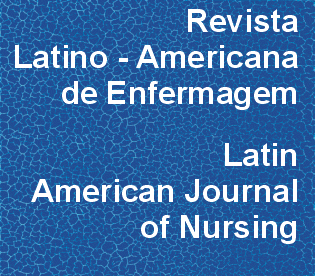Vulnerabilidad de la familia: desarrollo del concepto
DOI:
https://doi.org/10.1590/S0104-11692005000600010Palabras clave:
familia, enfermedad, formación del conceptoResumen
Este estudio buscó desarrollar el concepto vulnerabilidad de la familia, utilizando la estrategia del Análisis Cualitativo de Concepto, que consta de dos etapas: en la primera, la fase teórica, los datos fueron recolectados con base en la literatura, y, en la segunda, la fase de campo, se utilizaron observaciones y entrevistas con 12 familias que vivencian una experiencia de enfermedad y hospitalización de un hijo. El Interaccionismo Simbólico fue el eje teórico que orientó los procesos de indagación, dando sustento a la Teoría Fundamentada en los Datos, que fue utilizada para guiar la recolección y análisis de los datos en esta etapa. Como resultado, se construyó un modelo teórico cuya categoría central define la vulnerabilidad de la familia como SINTIÉNDOSE AMENAZADA EN SU AUTONOMÍA, en razón de las interacciones con la enfermedad, familia y equipo. La comparación de los dos análisis permitió la elaboración de una propuesta teórica de vulnerabilidad de la familia y avances en términos de conocimiento teórico en el área de enfermería de la familia.Descargas
Los datos de descarga aún no están disponibles.
Descargas
Publicado
2005-12-01
Número
Sección
Artículos Originales
Licencia
Los derechos de autor son propiedad exclusiva de la Revista Latino-Americana de Enfermagem (RLAE), transferidos a través de la Declaración de Transferencia de Derechos de autor (que está en el formulario individual de declaración) firmada por los autores. Para el uso de artículos, RLAE adopta la Licencia Creative Commons CC BY-NC atribución no comercial (abstracto o código completo de licencia). Con esta licencia es permitido acceder, descargar (download), copiar, imprimir, compartir, reutilizar y distribuir los artículos, desde que para uso no comercial y con citación de la fuente, dando los créditos de autor a la Revista Latino-Americana de Enfermagem. En tales casos, no se necesita permiso de los autores o editores.Cómo citar
Pettengill, M. A. M., & Angelo, M. (2005). Vulnerabilidad de la familia: desarrollo del concepto. Revista Latino-Americana De Enfermagem, 13(6), 982-988. https://doi.org/10.1590/S0104-11692005000600010



